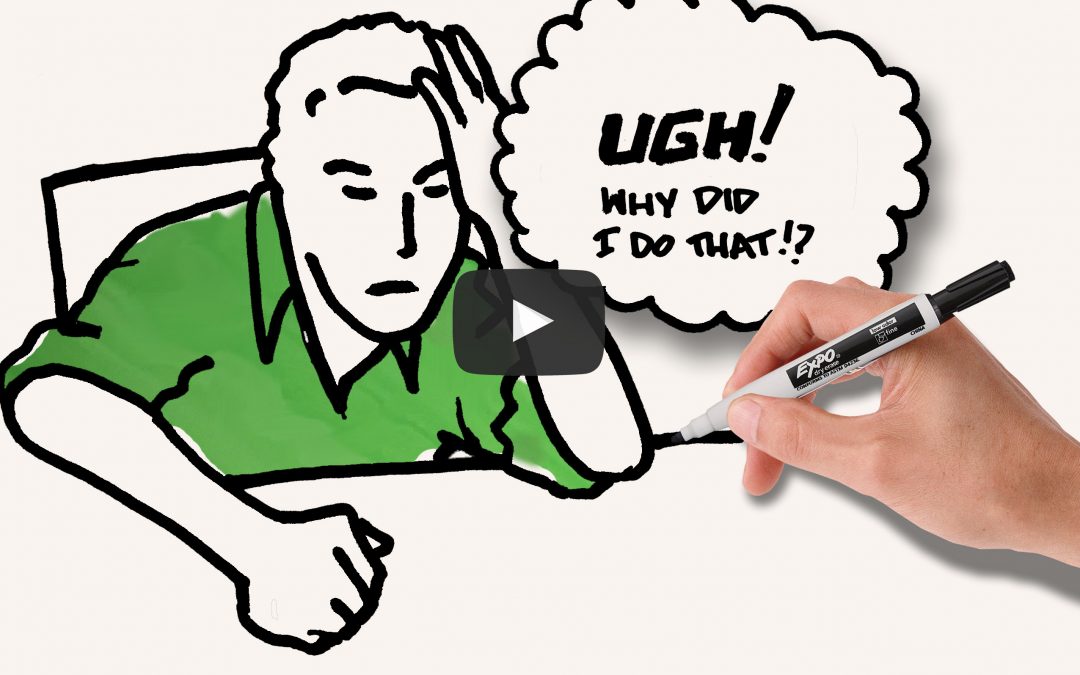How sex addiction starts, how it takes over our life, and how therapy helps us regain control. Runtime: 5:00min
Video Transcript
We live in an isolating world of compulsive social media behavior and 24/7 access to sexual arousal.
Is hypersexuality the new normal? Or is something else going on?
Researchers (Dickenson, 2018) are saying compulsive sexual behavior might be more common than anyone thought. While opinions vary on definitions and more research is needed there is general agreement among practitioners that compulsive sexual behavior is deep-rooted and follows a similar pattern to those of alcohol, cigarettes, or drug addiction.
At the same time compulsive sexual behavior is different than other addictions, in that sex addicts use the most intimate act—the place where pair bonding can begin—to isolate themselves from intimacy.
Sex addiction does not discriminate. It strikes men, women, gay, straight, young, old, religious, and non-religious alike. It takes many forms. Though it’s not any one particular act, preference, or even frequency that characterizes sex addiction.
Sex addiction is about the relationship we form with sex that results in a destructive pattern of behavior to ourselves and others. To understand it, let’s step back and see how sex addiction begins, how compulsive behavior takes over, and how therapy can help us regain control of our lives.
People who suffer from compulsive sexual behavior often report having experienced traumatic events or deep unmet needs growing up. Whether it’s a big trauma or lots of little inconspicuous traumas, if we don’t feel safe within our family system, we protect ourselves by ultimately bonding with other things, like TV, food, alcohol, cigarettes, and sex. These behaviors release dopamine in the brain which makes us feel safe, like getting a warm hug.
It’s not uncommon to turn to medicative behaviors during stressful times. But for some of us, wires get crossed. We become emotionally stuck in a cycle of stress and reward. Sex addiction is likely rooted in childhood as an innocent coping behavior that turns into destructive patterns and faulty thinking as we get older. We rationalize our compulsive behavior with excuses. We form negative beliefs about others and ourselves. At first it works. Our excuses almost seem convincing. At one point, we might even wonder if we are addicted to sex.
But the pattern continues: the string of break-ups, a password-protected double life, the one-foot-in/one-foot-out of relationships, the excitement and deep frustration. We engage in riskier behavior, needing more to get the same result, the tell-tale spiral of addiction. One minute we are on cloud nine, the next in shame. We know we are stuck, yet we don’t want to know it.
Until finally, crisis. Our partner leaves us. We get fired. Close friends fade away. We hit rock bottom. Do we stay where we are? Do we change? In a rare moment of self-awareness, we ask for help—a monumental first step.
Therapy challenges faulty thinking. It gives us the conceptual tools to break from the stories and rationalizations that block true intimacy. We get at the underlying hurt and confront ourselves and the childhood defenses we carry into our adult life.
We work through guilt and grief of loss: what was done to me and what we have done to others. With courage and support, we open doors that once frightened us. In couple and group therapy we retrain destructive habits of thought and exercise honesty, accountability, and transparency.
Through this we gain relationship-building skills, how to talk differently, how to listen, how to handle stress and difficult feelings, how to accept and love ourselves and treat ourselves and others like we want to be treated.
Recovery doesn’t happen overnight, but we can change. With each step, we evolve, our sexuality evolves, and we reconnect with our partner and family at a healthier new level.
Some therapists say hope comes the moment we pick up the phone for help. Others see it in group therapy when we offer advice to someone struggling with addiction. In that moment of empathy and connection, we are gaining control of our life. There is hope.
Janna A. Dickenson, PhD; Neil Gleason, MA; Eli Coleman, PhD; Michael H. Miner, PhD, Prevalence of Distress Associated With Difficulty Controlling Sexual Urges, Feelings, and Behaviors in the United States, JAMA Network Open 2018.
For over a decade New York Pathways has helped people develop healthy sexuality and relationships, free from addictive behaviors. For more information, call us at (212) 244-4447.

